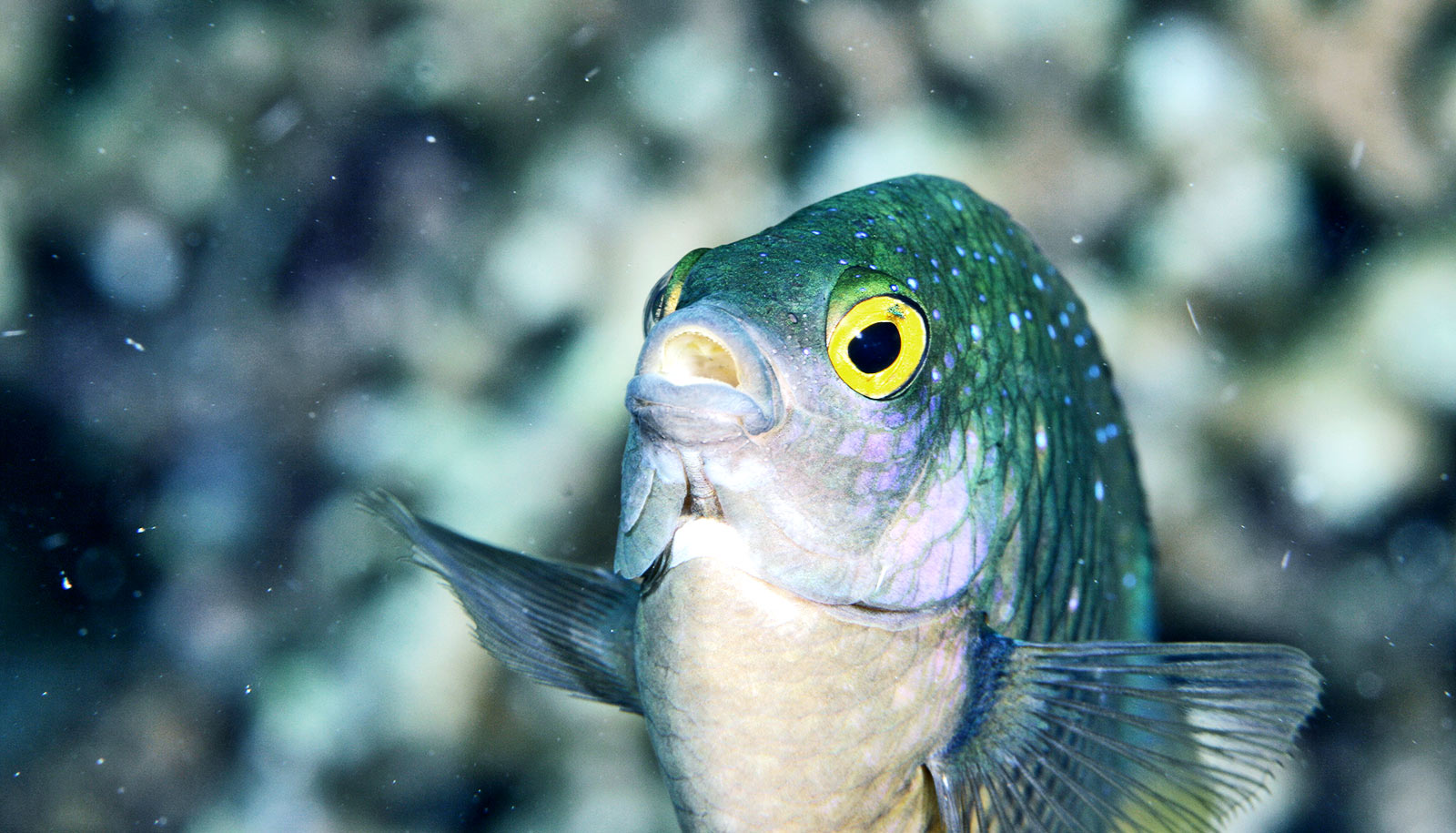Oil can negatively affect the higher-order thinking of coral reef fish, making them more vulnerable to predators and less able to find a livable habitat, new research suggests.
“…the fish exposed to oil exhibited very risky behavior, even in the presence of a predator.”
Researchers examined six different species of coral reef fish and discovered that exposure to oil consistently affects behavior in ways that put the fish at risk.
During several weeks when coral reef fish go through their juvenile stages of development, they are especially vulnerable. Even in healthy populations of reef fish, typically less than 10 percent of embryos and larvae reach adulthood. Those who survive must learn to identify friend from foe and adopt protective behaviors, such as traveling in groups, minimizing movement in open waters, and swimming away quickly from danger.
Experiments show that juvenile fish exposed to oil struggled on all these counts.
“In several different experiments, the fish exposed to oil exhibited very risky behavior, even in the presence of a predator,” says Andrew Esbaugh, assistant professor of marine science at the University of Texas at Austin Marine Science Institute.
Further, oil exposure negatively affects the fishes’ growth, survival, and settlement behaviors (their ability to find a suitable habitat).
Oil concentrations are found in oceans worldwide, but until now little has been known about the impact of oil exposure on coral reef fish.
Earlier research that explored how oil affects the physiology of fishes demonstrated developmental heart deformities and associated cardiac functions, but this is the first study to demonstrate that oil exposure affects behavior in a way that increases predation and reduces settlement success.
Food web shows winners and losers 7 years after Deepwater
The finding could be bad news for reefs, too, since many coral reefs depend on fish to remove algae that can restrict their growth and development.
Coral reef ecosystems are the oceans’ most diverse ecosystems—and the most threatened. Hundreds of millions of people depend on coral reefs and their fish for income or food, but widespread coral bleaching and overfishing threaten this way of life. The new study indicates that limiting oil-based industrial activities near reefs may be critical for reef preservation.
“Over the past 35 years, almost one-fifth of the world’s coral reefs have been lost and half of what’s remaining is either expected to disappear or be under severe threat in the next few decades,” says lead researcher Jacob Johansen.
“Still, many governments continue to allow industrial activities, including oil drilling and exploration, in sensitive reef habitats. If a spill were to occur, this study suggests there could be major consequences for the fish, for coral reefs, and for people working in fisheries and tourism,” Johansen continues.
“We used oil concentrations that are already present in many industrialized regions worldwide—concentrations that ranged from two to five parts per billion, the equivalent of a couple of drops in a swimming pool,” he says.
Exposure to these oil concentrations caused higher rates both of immediate death and more latent death, in addition to the behavioral shifts and cognitive changes in coral reef fish. These results suggest that future studies of oil in sensitive environments, such as coral reefs, should account for behavior in addition to the toxic effects when trying to capture the overall ecological health of the system or make predictions about fish populations.
This crude oil ingredient hurts tuna hearts
The paper appears in the journal Nature Ecology and Evolution.
Researchers from the Institute of Marine Research in Bergen, Norway and the Australian Research Council Centre of Excellence for Coral Reef Studies contributed to the study. The Gulf of Mexico Research Initiative, Australian Research Council, and Lizard Island Reef Research Foundation funded the work.
Source: University of Texas at Austin



